OFFICE FREE FRIDAYS TRIAL PERIOD HAS CONCLUDED
CWS’s O.F.F. (Office Free Fridays) experiment is over as of the start of September. We polled our people for feedback and most thought communication was rocky at the start but improved in a couple of weeks. Other than that, most said they loved the uninterrupted time to get a project done.
WERE WE TRULY MORE PRODUCTIVE?
On the production side, we saw a (small) increase in billable hours compared to the previous “in the office” Fridays. Our leadership team asked, Is this a good thing? Can the increase in billable hours be attributed solely to O.F.F. or is it something else? Will employees start to slack off? Should we continue it?
We decided to ask other remote workers in our community for their take on this way of working.
Our 4 Remote Interviewees Included:
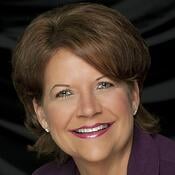 Judy Braatz
Judy Braatz
- Membership Development Director for the Rochester Area Chamber of Commerce
- Sells and retains Chamber memberships
- Remote for 22 years
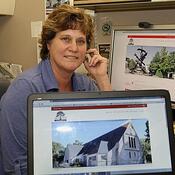 Theresa Tucker
Theresa Tucker
- Webmaster/System Administrator for The Hormel Institute
- Manages and develops websites,troubleshoots Linux servers, PC, Mac workstations.
- Remote for 17+ years
 Sara Clausen
Sara Clausen
- Regional Director for the American Heart Association
- Implements Service Learning Programs in schools and is The Go Red for Women Rochester
- Lunch Director
- Remote for 3 years
 Ray Reynolds
Ray Reynolds
- Project Planner for Northrup-Grumman
- Supervise cycle counters and evaluate counts. Monitor SAP help desks, providing fixes for issues and educating users so they can avoid issues in the future.
- Remote for 1+ year due to health issues
1. How has the office environment changed since you entered the workforce?
Judy: The office environment has changed dramatically over the past 20 years. With modern technology, employees can work from any location.
Theresa: With the changes in Internet speed and advancements with PCs and security, most of what I do can be done from home.
Sara: I see more organizations offering remote work across industries, whether full-time or part-time. When I began my career in 2002, it was somewhat unheard of. Companies are realizing it is a good fit for some employees. It can assist in situations where there may be a lack of office space. Also, if a salesperson spends a majority of time outside of the office anyway, it might make more sense to require less space for a sales employee.
Ray: When I started, my company was going through a huge growth spurt so we had desks lined up ten across with no room for anything. Also, you were expected to be in the office every day, sometimes on weekends as well. There was no one even suggesting working from home and technology certainly didn't support it.
2. Do you think you are more productive not working in a traditional office setting and why?
Judy: I am definitely more productive in my home office. Our Chamber office is very social with a lot of Chamber members coming in for various reasons. I would be distracted by wanting to visit with them. I know how much time it takes to make calls for appointments, follow-up contacts, and retention work, so I schedule time to pound out the calls in my home office.
Theresa: More productive. Because of the time constraints, I have to be focused, organized, and driven.
Sara: At this point in my career, I am definitely more productive in my home office. I am focused and know my time is valuable. In a traditional office setting, I was easily distracted by office chatting and socialization. Additionally, a mix of different personalities in an office can lead to negativity, which I don’t tolerate well. Debbie Downers are draining, and I don’t have to worry about any of that.
Ray: No, not more productive, but as productive as I can be, given my health limitations.
3. What types of people would excel at remote work?
Judy: Self-motivated, focused, and independent workers. You can't be distracted easily, but have to be disciplined every day to reach your goals. You also need little supervision. Commissioned sales people know that if they don't do the work, they don't get paid.
Theresa: Somewhat introverted, self-driven.
Sara: An employee who enjoys their job and is driven every day. They should know their job well and take initiative. Someone willing to reach out to their manager if they have questions or need assistance.
Ray: People who have strict discipline with regards to the work day and work area.
4. What types might struggle?
Judy: People who need a lot of attention and directions would struggle in this arena. If you like being around people, this could be frustrating.
Theresa: Those that need constant direction and supervision.
Sara: An employee straight out of school with no experience might struggle. I know that younger employees may argue this point or take offense. However, in all honesty, I know that my 23-year-old self would not have been successful in a remote work environment.
Ray: People who are easily distracted or not motivated to do the job. They may feel they can get away with things since there is little to no supervision.
5. When you work remote, where do you work?
Judy: I have a room in my home that is dedicated for my office. When I need to meet with a client, I meet them at their office or at the Chamber office.
Theresa: I have a home office, but I work from the kitchen counter or living room at times.
Sara: I have a traditional office set up in our home, a lower level room without windows. I need natural light and find myself working more from my kitchen island. However, when my family is home, I go down to my office. On days when I know I need to really focus or do dreaded paperwork, I tend to treat myself by going to Caribou Coffee and working for a few hours. On a beautiful, low wind day, I may take my office out to my back patio.
Ray: I work in a spare bedroom that I use for my office.
6. What do you like about it?
Judy: I love it. I get work done without distractions and in less time. It allows flexibility but also can be challenging that you are never away from your work. While I need to have specific time in my office, this job gives me a lot of face-to-face time with business people and time for networking. It really is a perfect blend and is why I have stayed for over 20 years.
Theresa: I like the relaxed setting.
Sara: I appreciate the flexibility it provides me. Especially as a mom of two school-aged children, it is great to not worry about sick days for my children. If I take a break to volunteer at school for example, I know that I can catch up on emails or paperwork at night.
Ray: It is quiet and out of the way. My wife is able to move around the house without disturbing me.
7. What do you dislike?
Judy: Nothing, I think I have really perfected the art of working from my home office.
Theresa: Nothing.
Sara: There are times when I miss the social interaction of coworkers and creating workplace friendships and bonds. However, as a salesperson, I have plenty of interaction daily.
Ray: The lack of face-to-face interaction.
8. What's your biggest challenge?
Judy: The biggest challenge is scheduling meetings/appointments back to back so that I am using my time efficiently. It wastes time to run back to the office in between appointments.
Theresa: Not getting interrupted by day-to-day home situations/domestic goddess chores.
Sara: Sometimes my family forgets that I’m working. My husband may ask me to run an errand or my kids get frustrated because I’m “working all the time.” It is hard to turn off work outside of office hours. I often think I can just finish one more thing or check my email one more time.
Ray: Maintaining a positive attitude due to some feelings of isolation.
9. What tips would you give an employer thinking of offering a remote work policy, even if it's only one day a week?
Judy: I would suggest they try it. It could build a positive atmosphere in your office and productivity may increase. As a salesperson, my employer will know if I'm not working hard because my numbers will reflect it.
Theresa: A lot of what I do can be done remotely. If it saves your employee time and money, and they are productive, give it a try.
Sara: Start slowly with one day a week and see how it goes. Evaluate it individually; it is not the best fit for all. Make sure management is accessible for questions when you can’t just run down the hall for a solution.
Ray: Make sure there is a way to monitor productivity, and be ready to bring people back to the office who don’t seem to produce.
10. What advice would you give to a person working remote for the first time?
Judy: I would suggest that they get dressed for work and not work in their bathrobe. Write down what you want to accomplish for the day. Stay focused and enjoy your office.
Theresa: I’m not easily distracted, but if you are…start with a quiet, well-lit, comfortable setting and enjoy working.
Sara: Make a task list and prioritize! You have to be more organized than you would be in a traditional office setting. Work smarter, not harder. Also, it takes a lot of trust from your employer. Work hard to prove that you can be successful in a remote office setting.
Ray: Get up at the same time every day, get dressed every day, shave—do what you would do if you were going to the office. It helps to maintain the proper frame of mind.
WHAT DID CWS DECIDE?
We are extending it through September at least. Summer is a tough time to truly evaluate because more people take PTO in the summer. We continue to learn and tweak, but for the most part, we give it a thumbs up.
Thanks to our interviewees who took time to answer our questions and offer great advice!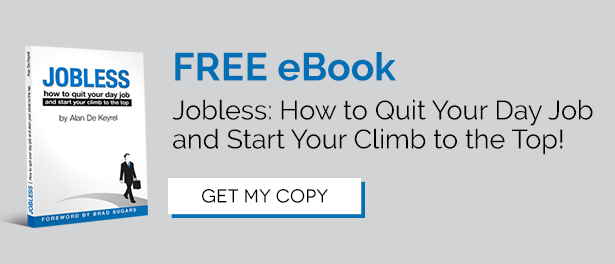

.jpg?t=1533315998368) How-To Articles
How-To Articles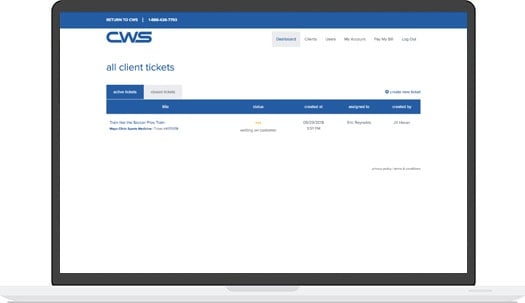 Support Portal
Support Portal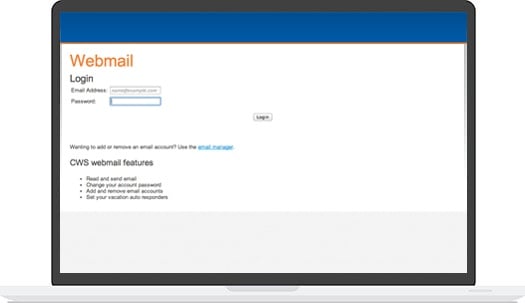 Webmail
Webmail Rapid Newsletter+
Rapid Newsletter+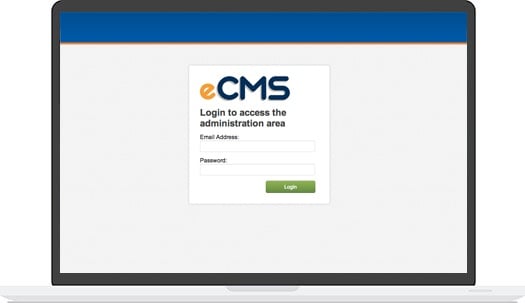 eCMS
eCMS

 Judy Braatz
Judy Braatz Theresa Tucker
Theresa Tucker Sara Clausen
Sara Clausen Ray Reynolds
Ray Reynolds Our content team is made up of thought leaders, strategists, and content creators who have more than 70 years of combined experience. With a wide variety of backgrounds as entrepreneurs, marketing gurus, healthcare associates, as well as plenty of experience in other industries, we help grow businesses with our relevant, trusted, and helpful resources.
Our content team is made up of thought leaders, strategists, and content creators who have more than 70 years of combined experience. With a wide variety of backgrounds as entrepreneurs, marketing gurus, healthcare associates, as well as plenty of experience in other industries, we help grow businesses with our relevant, trusted, and helpful resources.
